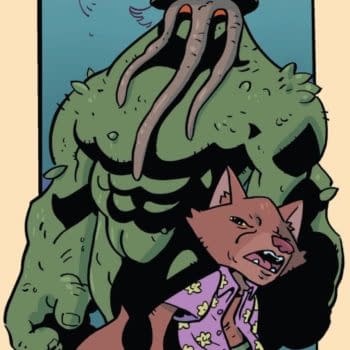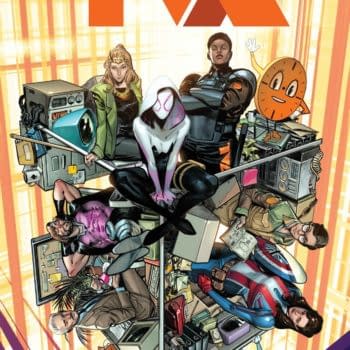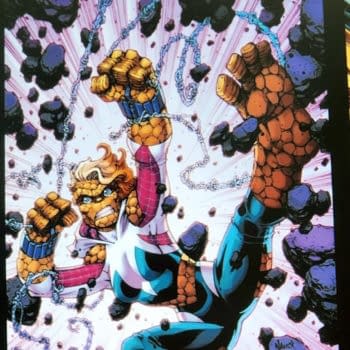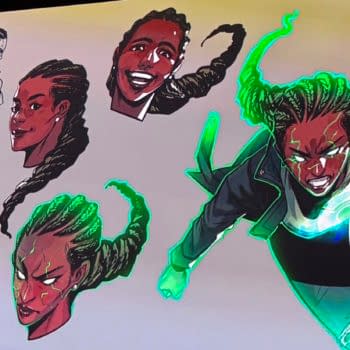Posted in: Comics, NYCC | Tagged: Bob Fingerman, Comics, entertainment, image, jason latour, NYCC, shane davis
NYCC '15: Artists Discuss Process At The Image Comics: Where Creators Own Craft Panel
By Madeline Ricchiuto
Jason Latour, Bob Fingerman, Wes Craig, Matt Wilson, and Shane Davis held the Image: Where Creators Own Craft panel on Sunday at NYCC 2015. Matt Wilson talked about his coloring process, Bob Fingerman discussed his overlapped-lettering choices as well as the coloring on Minimum Wage, Shane Davis discussed his art on Axcend and the importance of reference photos, Wes Craig's Deadly Class art uses flat colors with no modelling to let the line-work show through, Jason Latour talked about hyper-realism and disposability in Southern Bastards.
Fingerman then went on to talk about playing comedy straight in his acting for Minimum Wage. "The best comedy movies all play it straight… I don't really go for broad expressions."
Wilson's use of color on The Wicked + The Divine to highlight depth with warm vs cool colors rather than using dark and light colors.
Craig walked us through his use of atmospheric panels to control the rhythm of Deadly Class with grids and splash pages.
Davis used a juxtaposition of art styles with The Real World to help convey the differences between life in the game and life outside of it. He had used that trick before with "subtle visual quirks" like keeping characters in certain colors and using grid-like static patterns to help show that the game is on a screen. Its a very 80s inspired style.
Latour who writes, draws, and colors Southern Bastards tries to "remove [his] expectation of craft from [his] craft." When he goes between the steps of creating the comic,"thinking through what the comic needs" rather than getting ahead of himself by leaving certain steps half-finished. Latour often works on paper rather than digitally.
At this point, Fingerman jumped in to point out that he is also not a fan of over-photoshopping comics because photoshop rendering can obleterate linework. Most of the panelists agreed that working on paper rather than digitally creates better art. "Its the artist version of write what you know," Latour said.
"The thing you need to do as an artist is learn your reading comprehension, because you really need to understand the script, even if you wrote it." Latour added, using the script as a way to help layout and draw panels. Davis stressed the importance of writers understanding visuals "you really need to think about panels touching… You can't just mix and match images."















